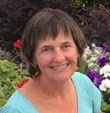Cheeping and speaking
 |
| I'll miss these guys if they sell. |
Looking both backward and forward, I'm prepping my entry for a reprise of Artspace's Birds of a Feather show, March 3-31 at the First Unitarian Church of Portland, 1034 S.W. 13th Ave. in Portland, 97205.
From our statement:
The theme of Birds of a Feather speaks not only to our community of artists, but to other 'flocks' as well. The tribal is timeless. 'Birds of a Feather' also brings to mind more abstract issues of unity, wholeness, and inclusiveness. What does it mean to belong? What does it mean to embrace? Does the flock assemble organically, or is it a category outside our choosing? These are just a few of the questions we've debated within ourselves and with each other in creating work for this show.
This time around I've put the Chiyogami Chicks on more stable footing (ha), and whipped up more eggs swathed in fantastical Japanese paper.
I continue to attend the public lectures given as part of the MFA program in applied craft and design jointly offered by the Oregon College of Art & Craft and Pacific Northwest College of Art. Even if the featured artist-designer works in a medium I know nothing about (fibers, wood sculpture), I almost always come away with food for thought and good notes. Over the years I've learned about paper's many possibilities (Paul Wong), elemental furniture (Allan Wexler), the ultimate synthesis of art and science (Christine Lee), how good Abraham Lincoln looks with an afro (Sonya Clark), and much more.
After a few years of these fruitful Wednesday nights I've realized what makes an artist, already inspiring to me, even better as a speaker:
• They say from the get-go why they're up there. I don't mean listing academic credentials and titles, but really—what have they done and where have they been (humility is fine, but face it: We're here to learn).
• After the elevator speech, they jump right into projects and slides. It's the eye-ear candy we crave.
• They avoid reading the slides in the presentation.• They show links between creative thinking and evolution of career.
• Pauses are OK; "um" detracts from the message.
• They update the presentation as necessary. If all references and projects are years old, we'll notice.
• They practice. I'll never forget the Famous Artists from New York who came to speak at the Portland Art Museum a few years back. They hadn't bothered to do a run-through. Sure, Portland can feel provincial, but we're still worth your best effort. Besides, the next collector/investor/benefactor could be in the audience.


